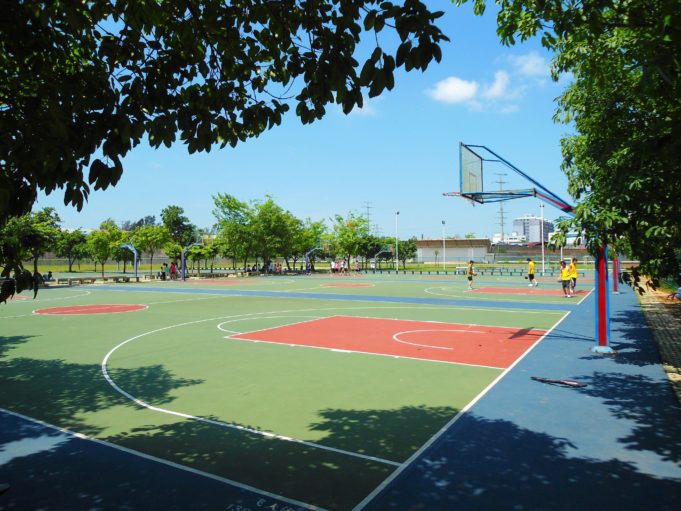I keep reading the NBA has a problem with “China.” “China” has raised a ruckus over a general manager’s tweet. The NBA has knuckled under to “China.” I’m not sure that’s the right word to use.
Words matter in this situation, and, in fact, they’re what set off this whole imbroglio. Houston Rockets General Manager Daryl Morey tweeted these: “Fight for Freedom, Stand with Hong Kong.” His statement had to do with ongoing protests by residents of Hong Kong upset with what they believe is an attempt by “China” to take away their long-enjoyed freedoms.
“China” responded negatively. “China” announced they would no longer carry Rockets’ games on TV in the country and that they’d generally be ticked off at the league. Stateside pundits have criticized the NBA and its commissioner Adam Silver for not telling “China” to stuff it (in ersatz basketball parlance). “China” then criticized Silver for making an official statement that endorsed freedom of speech.
I’ve used quotation marks when referring to the Middle Kingdom because one can’t assume all, most, or even a lot of a country’s population agrees with the statements or actions of its government officials. So when we say the NBA offended “China,” what we’re really saying in this case is that they offended officials in the Chinese power structure. This group told us through an official statement what they think: “We believe that no comments challenging national sovereignty and social stability fall within the scope of freedom of expressions.”
Language comes into play here again. What constitutes a comment “challenging national sovereignty and social stability,” falls into a serious gray area. And, it turns out, those same officials are the ones who get to define what those words mean in their country and can act to repress those who use them.
In their minds it’s all about security. They aim to define that term as meaning threats to “China,” as in everybody in country. Others might suggest the security that concerns them is that of their own jobs. Did Morey’s words actually have the potential to cause the effect the officials feared? I suppose “fight” could be interpreted as an incitement to social-stability-disrupting violence. While Morey is a public figure, his words alone seem unlikely to stir revolutionary (or counter-revolutionary, from the Communist perspective) activity.
There’s a good chance Adam Silver’s less than robust repudiation of the Chinese government had to do with security, too – that of his employees (LeBron James seems to have perceived this as well). A whole bunch of them either were already in China or were scheduled to go there. In a country not known for due process (a key point of the Hong Kong protestors), one might have to muzzle one’s sentiments to protect one’s friends and co-workers from lengthy imprisonment. That is an understandable short-term outlook.
But words also matter in the long term. The verbiage of documents like the Federalist Papers, Thomas Paine’s “Common Sense,” and The Liberator influenced events that ensured Americans would enjoy a high degree of freedom to speak. One could make the case that Glasnost-era freedom of expression hastened the opening of the Eastern Bloc. So perhaps Chinese officials have cause to believe free thoughts like those Morey conveyed could indeed advance the kind of movement that would result in the demise of their centrally-planned “social stability.”
By itself, Morey’s since-deleted Tweet won’t cause a rebellion. But the officials wouldn’t have reacted so decisively initially if they didn’t fear something. They’ve continued to spar with Silver, with the government’s official TV outlet saying, “This has crossed the bottom line of the Chinese people.” The idea that the country’s 1.4 billion people have the same bottom line about anything seems impossible (and also impossible to determine) even for a democratically elected government, much less one with even fewer feedback mechanisms.
Despite recent setbacks, trade between Chinese producers and those in the rest of the world has increased in recent decades. That doesn’t just mean we’re using more of their stuff and they’re using more of ours. It means more personal interactions between individuals of those regions – far more than happened under, say, the Maoist regime. Despite ongoing censorship and surveillance efforts, the Chinese government can’t possibly monitor all of those touchpoints. Mao Tse-Tung might have been able to prevent his subjects from learning that people in the West weren’t all out to get them. The current government, while powerful, can’t prevent its people from forming bonds and learning information one trade at a time. Those add up. The NBA is just one high-profile example among billions.
Change usually happens gradually as little things add up. And it’s not always big philosophical movements that tip the scale. Underestimate pop culture at your peril. Ask Nicolae Ceaușescu how his Romanian subjects reacted after he let them watch episodes of Dallas. Suddenly he wasn’t their protector against capitalist aggression. He became the guy who was preventing them from getting plentiful food choices and cool stuff. Actually, you can’t ask him because he didn’t survive the backlash.
It helps politicians to suggest they speak for more than just themselves, in this case a whole country. Because when people can think for themselves and express themselves, they often say they don’t want, for instance, an English king or Eastern European dictator telling them what to do. One thing hundreds of millions of Chinese people have decided they like – without the officialdom telling them they have to – is the NBA. We know they’re fans – passionate ones. The government is now cutting off some of their access to that passion, perhaps with more to come. They say it’s because an NBA-related Tweet threatened “China’s” security. What if those Chinese NBA fans start to ask why they can’t watch the Rockets any more and decide the official reason doesn’t add up? What if they also then wonder how tiny Hong Kong (population less than 8 million) could possibly pose an existential threat to law and order on the mainland? Maybe they’ll have a conversation with an American business collaborator and find out that the U.S. has survived more than 200 years while placing a high value on free speech and due process.
And maybe the officials who don’t feel individual Chinese citizens need those things will come to be described by those they rule as being not the protectors of “national sovereignty and social stability,” but rather “those who keep me from watching the NBA (and a whole bunch of other stuff) I love for no good reason.” And once they’ve lost legitimacy in the eyes of a substantial number of individuals, all they have left is the ability to use force. Tanks and guns can help them keep power for a while, but will it be enough? It wasn’t for the Eastern Bloc rulers.
The current Chinese administration is reacting out of fear. They’re hoping that costing the league millions in revenue and smearing them in their state-owned media will head off any consequences. They’re hoping that this isn’t part of an inevitable delegitimization process that’s already started. And while I certainly don’t want to suggest that the NBA has the power to topple governments, there is a chance they could have a part to play (maybe even a high-profile one) in a process that’s already started. That’s what the authorities fear – a day when they themselves are no longer described as “China.” History indicates that day is likely to come at some point. We may as well start getting our language correct now.












